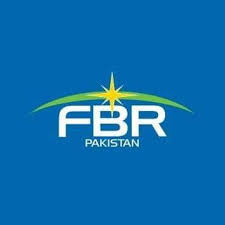taxation of accountancy services in Pakistan is an essential topic for businesses, accountants, and tax professionals. It is important to understand the rules and regulations regarding the taxation of accountancy services to avoid any legal complications and to ensure compliance with tax laws. In this article, we will discuss the taxation of accountancy services in Pakistan in detail, including definitions, examples, and case studies.
Definition of Accountancy Services
Accountancy services refer to the services provided by professional accountants, which include the preparation of financial statements, auditing, tax planning, bookkeeping, and financial analysis. These services are crucial for businesses to maintain accurate financial records and comply with legal and regulatory requirements.
Taxation of Accountancy Services in Pakistan
The taxation of accountancy services in Pakistan is governed by the Income Tax Ordinance, 2001, and the Sales Tax Act, 1990. According to the Income Tax Ordinance, accountancy services are classified as professional services, which are subject to income tax at the rate of 10%. This tax is deducted by the person making the payment to the accountant and is deposited with the Federal Board of Revenue (FBR).
The Sales Tax Act, on the other hand, imposes a sales tax of 17% on the services provided by professional accountants. However, there are certain exemptions available under the law, such as the exemption for small businesses with a turnover of less than Rs. 50 lakh per annum.
Examples of Taxation of Accountancy Services in Pakistan
Let us take some examples to understand the taxation of accountancy services in Pakistan.
Example 1:
ABC Ltd hires a professional accountant to prepare its financial statements. The accountant charges Rs. 1 lakh for the service. How much tax will ABC Ltd deduct and deposit with the FBR?
Solution: According to the Income Tax Ordinance, ABC Ltd will deduct 10% tax from the payment made to the accountant, which is Rs. 10,000. ABC Ltd will deposit this tax with the FBR.
Example 2:
XYZ Ltd hires a professional accountant to provide tax planning services. The accountant charges Rs. 2 lakh for the service. How much sales tax will XYZ Ltd pay?
Solution: According to the Sales Tax Act, XYZ Ltd will pay a sales tax of 17% on the service provided by the accountant, which is Rs. 34,000. However, if XYZ Ltd falls under the exemption for small businesses, it will not be required to pay any sales tax.
Case Studies of Taxation of Accountancy Services in Pakistan
Let us take a look at some case studies to understand the taxation of accountancy services in Pakistan.
Case Study 1:
ABC Pvt Ltd hires a professional accountant to provide auditing services. The accountant charges Rs. 5 lakh for the service. ABC Pvt Ltd deducts 10% tax and deposits it with the FBR. However, after the audit is completed, the FBR audits ABC Pvt Ltd’s financial statements and finds that the tax deducted and deposited was not accurate. The FBR imposes a penalty on ABC Pvt Ltd.
Solution: ABC Pvt Ltd should ensure that the tax deducted and deposited is accurate and in compliance with the law. If there is any discrepancy, the company may be liable to pay a penalty.
Case Study 2:
XYZ Pvt Ltd hires a professional accountant to provide bookkeeping services. The accountant charges Rs. 2 lakh for the service. However, XYZ Pvt Ltd does not deduct or deposit any tax with the FBR. The FBR conducts an audit and finds that XYZ Pvt Ltd did not comply with the tax laws.
Solution: XYZ Pvt Ltd should ensure that it complies with the tax laws and deducts and deposits the tax as required by law. Failure to comply with the tax laws may result in penalties and liabilities for the company.
Case Study 3:
ABC & Co. is a professional accounting firm that provides various services, including tax planning, bookkeeping, and financial analysis. The firm’s turnover for the previous financial year was Rs. 2 crore. How much sales tax will ABC & Co. be required to pay?
Solution: According to the Sales Tax Act, ABC & Co. will be required to pay a sales tax of 17% on the services provided, which amounts to Rs. 34 lakh. However, if ABC & Co. falls under the exemption for small businesses with a turnover of less than Rs. 50 lakh per annum, it will not be required to pay any sales tax.
Conclusion
In conclusion, the taxation of accountancy services in Pakistan is governed by the Income Tax Ordinance, 2001, and the Sales Tax Act, 1990. Professional accountants are required to comply with the tax laws and ensure that the tax is deducted and deposited accurately. Failure to comply with the tax laws may result in penalties and liabilities for the company. Businesses and tax professionals should have a thorough understanding of the rules and regulations regarding the taxation of accountancy services to avoid any legal complications and ensure compliance with tax laws.




